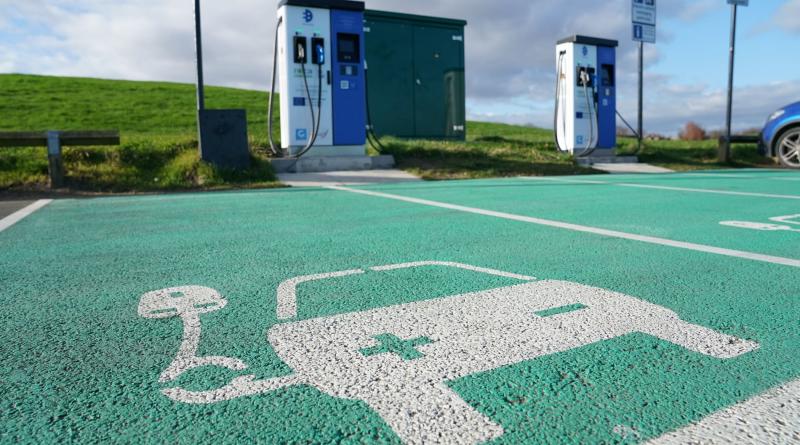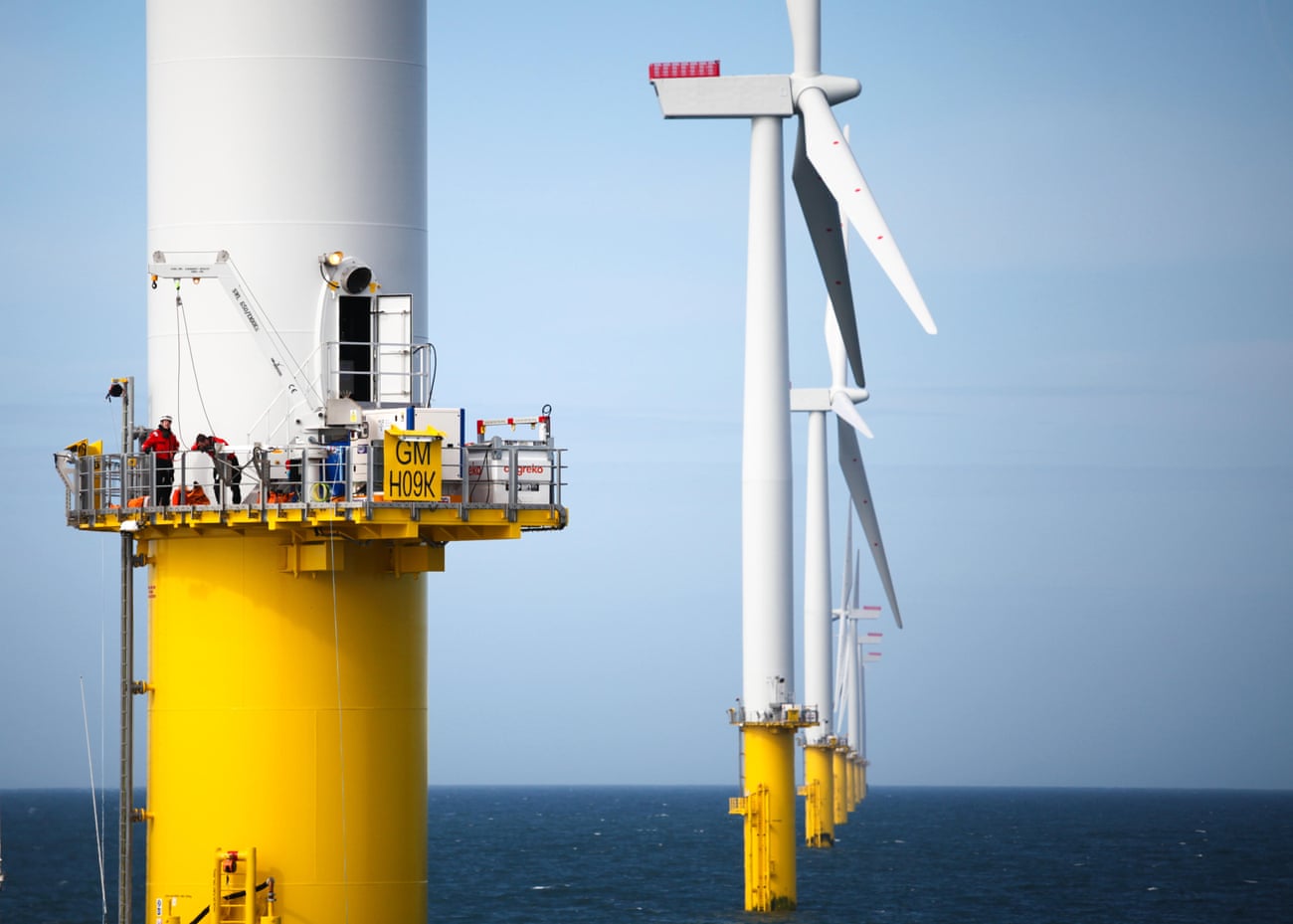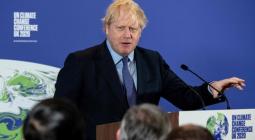The key areas of Boris Johnson's 'green industrial revolution'.

How can the objectives of the 10-point plan be achieved?
Boris Johnson’s £12bn plan for a “green industrial revolution” spans renewable energy, nuclear power and countryside restoration. However, some of the objectives are likely to be difficult to reach, and the plan has been criticised for a lack of ambition in key areas.
Offshore wind

Offshore wind has plunged in price in recent years, spurring an increase in windfarm construction even as government incentives have been slashed. However, the UK’s electricity grid has not kept up with the pace of change, and no commitment to offshore wind can be complete without explaining how the grid will be updated. Green groups are also concerned that a rush to new offshore windfarms will harm marine and coastal habitats, unless there is more coordination in their planning.
Industry experts are also worried that the boom in offshore wind will fail to benefit UK companies and will be led by those overseas that import components. While the government claims that jobs will be created here, many of them are likely to be low-value “muck-shifting” construction work rather than in high-value manufacturing, unless there is more support for manufacturers.
The government promises to produce enough offshore wind to power every home, but the electricity needs of the average family are likely to increase markedly as people switch to electric vehicles and heat pumps instead of gas boilers.
Onshore wind is cheaper than offshore wind, but the construction of onshore windfarms in England has all but ground to a halt, owing to planning reforms under David Cameron.
Hydrogen

Hydrogen has been touted as the fuel of the future for two decades, but despite advances in technology, the prospect of a hydrogen fuelled economy is still some way off. The International Energy Agency says investment in the technology now is a good idea, as part of a green recovery, but green groups are concerned that fossil fuel companies may see in hydrogen fuel an excuse to keep exploring for natural gas.
That is because currently the main source of hydrogen is as a byproduct of natural gas extraction. They warn that if hydrogen is to be truly low-carbon, the industry must invest instead in other forms of hydrogen production, such as producing the fuel from water.
Nuclear

Hinkley Point in Somerset is the UK’s only new nuclear power plant currently under construction, and has been plagued by lengthy delays and rising costs. When the plant finally comes on stream, it is likely to be the most expensive source of power in the UK. Plans for a second new reactor in Wales were finally abandoned in September by the Japanese company Hitachi, and proposals for a new plant at Sizewell in Suffolk are under review. If the government wishes to expand nuclear power, it will have to prove that it can be economical.
Tom Burke, chair of the E3G thinktank, said: “The only way to build another big nuclear reactor is if the government puts electricity bills up twice to pay for it – first to buy the concrete and steel to build it and then again to buy its electricity at far higher price than renewable generators will be charging. [And] the main problem with small modular reactors is that no one has one for sale – not even Rolls-Royce. They are actually offering to design one but only if the government will guarantee a £32bn order for 16 and pays half the £400m cost of the design. One word for deciding to go ahead on this basis is ‘brave’, a more appropriate word might be ‘foolhardy’.”
Electric vehicles
The move to bring forward the phase-out of fossil fuel vehicles has been widely trailed, and car manufacturers are now accelerating the shift to electric engines. What is so far missing is a plan for electric vehicle charging infrastructure. Building such infrastructure could generate tens of thousands of “shovel-ready” jobs, but who will pay for it? Cash-strapped local authorities currently shoulder much of the cost for the limited infrastructure available, but it is a patchwork system with widely varying costs for drivers across the country.
There is also no answer yet to the question of how heavy goods vehicles will be shifted away from fossil fuels.
Public transport, cycling and walking
Lockdown this spring provided a clear demonstration of what environmentalists have been arguing for years: that our towns and cities have been ruled by the motorcar, to the detriment of public health and the climate, but with better planning a healthier way of life is possible. More people would cycle and walk if it was easier and safer to do so, but the strength of the car lobby has been demonstrated by the uproar in many areas over low-traffic neighbourhoods.
Covid-19 has also led to people forsaking public transport, and many will be difficult to entice back – though if the shift to home-working becomes permanent, this may be less of a problem.
Making streets more accessible to cyclists and pedestrians will inevitably mean discouraging private car use in most of our towns and cities, and that will require muscular intervention by central and local government to face down the motoring lobby. The question is whether this government will have the courage needed to follow through on this commitment.
Aviation and greener maritime
Aviation and shipping have been left out of the UK’s carbon targets, as they have been left out of international climate agreements. But as carbon dioxide from other sources has been reduced, they represent an increasing share of global greenhouse gas emissions. Hydrogen fuel, in the form of ammonia, offers hope for shipping – but that prospect is still years off, and the shipping industry has shown little sign of wanting to reform itself in the meantime, despite its many opportunities for reducing emissions.
As the Guardian has revealed, the vast majority of emissions from aviation are produced by a minority of flyers. Most people in the UK do not fly in any given year, and when they do it is usually for a single family holiday. A frequent flyer levy would help to discourage people from taking more flights, without penalising the majority of people who fly rarely, but the government appears to have rejected this option – perhaps not wishing to place further burdens on an industry that has all but collapsed during the pandemic.
Homes and public buildings
The UK has some of the leakiest, draughtiest housing stock in the world – but until the Green Homes Grant was introduced at the end of September, there was no government assistance for homeowners wishing to insulate and upgrade their dwellings. Teething problems with the new scheme have meant a lack of installers signing up, however.
If the government wants to encourage installers to sign up to the Green Homes Grant, the message from the construction industry is clear: the £3bn scheme must be extended beyond its current end date of next March.
Heat pumps offer a green alternative to gas boilers, but they are expensive and there are few installers with the skills needed. If the government wants people to choose heat pumps – which can cost £10,000 – over gas boilers, some form of compulsion, on the same lines as the phase-out of electric vehicles by 2030, is likely to be needed alongside financial incentives to reduce the costs to householders.
Carbon capture
Capturing and storing carbon dioxide – in disused oil and gas fields under the North Sea, for instance – is likely to be needed for the UK to meet its target of net zero emissions by 2050. Over the last two decades, successive governments have made several attempts to kickstart the industry, but government funding was finally pulled by the then chancellor George Osborne under austerity.
The technology has now been proven in pilot projects around the world, but if it is to be deployed at scale the key question is who will pay for it? Some form of carbon tax on high-carbon industries would provide the funds needed, but companies already facing turmoil from Brexit are likely to push back strongly against any such plans.
Nature
Tree-planting provides a long-term way of reducing carbon dioxide emissions, but the government has so far failed to meet its own targets on growing new woodlands. Farmers are still waiting for details of the environment land management contracts that will replace their current EU subsidies, which are supposed to reward them for restoring natural features such as bogs and wetlands. Natural England has been demoralised and starved of funds. If ministers want to encourage tree-planting and nature restoration, farmers will need incentives and the government’s own agencies will need a boost.
Innovation and finance
Public companies are facing new rules on how to report on their exposure to the risks from climate breakdown, and many already do so. Green finance, prioritising low-carbon technologies, is also a growing sector, and investors such as pension funds are increasingly looking to green their portfolios. Tax incentives could help encourage more investors down the same route.
The main question is whether the government will put forward public funding – there have been proposals for a publicly funded green infrastructure bank, to invest in the changes needed to decarbonise the UK’s ageing buildings, and transport, communications, water and energy networks. That would require long-term commitment: the original Green Investment Bank, set up with public money under the coalition government, was quickly abandoned a few years later, and produced little tangible return.
The original 10-point plan contained a guarantee that the UK would halt government funding for fossil fuels overseas. That commitment appears to have been dropped, though it may resurface if internal government rows are resolved.
17 November 2020
The Guardian




